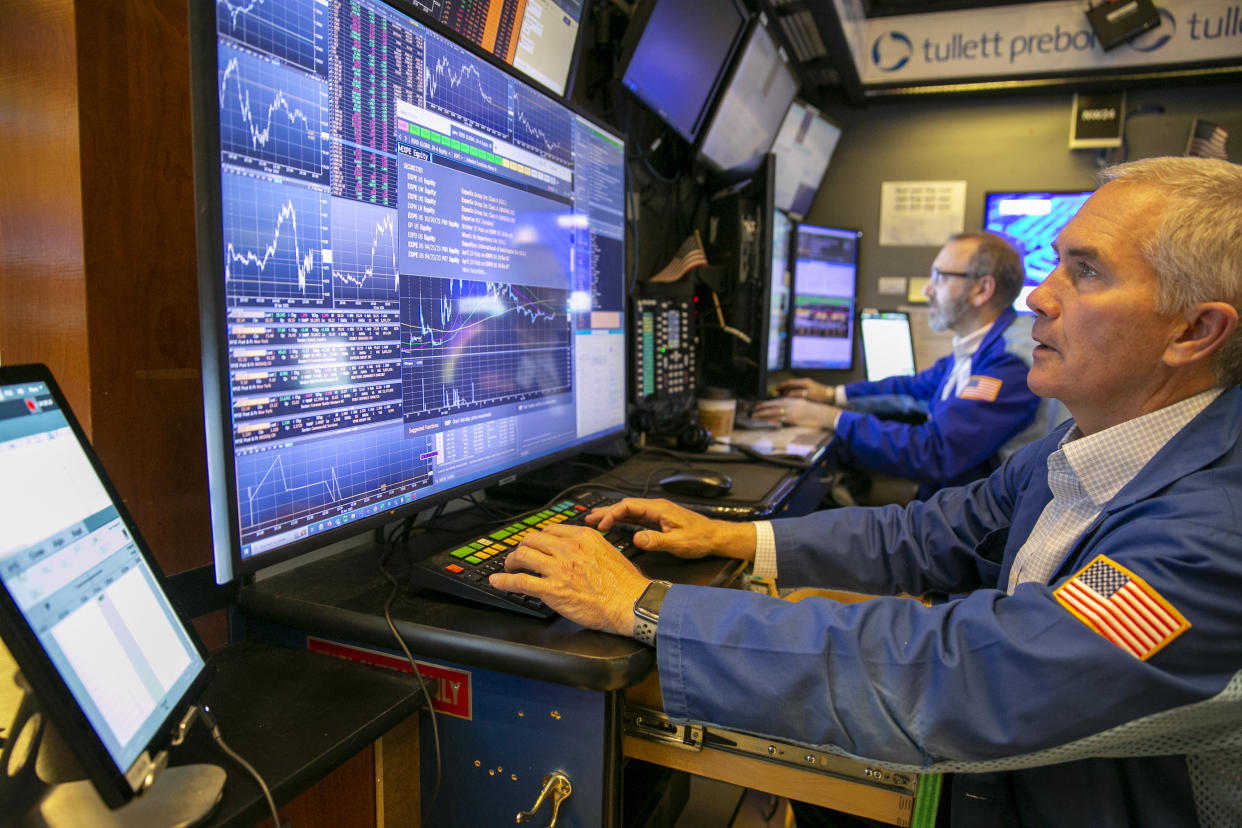Investing study: 2 personality traits 'stand out in their explanatory power for equity investments'
Your sociable, less predictable friends were more likely to indulge in the meme-stock frenzy during the post-pandemic bull market of 2021, a new paper suggests.
New research explored who is more likely to invest in stocks, who’s more likely to avoid them, and who’s more likely to follow a meme-stock or crypto-type trend.
The researchers — Dr. Zhengyang Jiang from the Kellogg School of Management from Northwestern University, Cameron Peng from London School of Economics, and Hongjun Yan from DePaul University's Department of Finance — evaluated the personalities of investors by using the Big Five model.
They found that the two personality traits, Neuroticism and Openness, "stand out in their explanatory power for equity investments. Investors with high Neuroticism and those with low Openness tend to allocate less investment to equities."
The study, the researchers argue, could help financial advisors steer investors into smarter investment decisions and help shape better policy around investing. They also said it could lay the foundation for more granular research into financial behavior.
"If you look at the past episodes of GameStop… or even more recently FTX, you might wonder: What lured people to invest in those things and whether this is good?" Dr. Jiang, one of the authors of the study, told Yahoo Finance. "And these things would be useful for both brokerage companies or stock investment firms as well as regulators to understand because this helps them to make better regulations or make better products that help people."
'The pessimistic people'
Developed in the 1930s and 1940s, The Big Five model became established as the best approach to understanding personality in the 1990s and early aughts, according Dr. David Condon, a personality psychologist at the University of Oregon who was not part of the study.
"The Big Five is seen as an empirically supported, consensus-phased approach to thinking about personality," Condon said. "Personality psychologists have been building off of the Big Five for a generation now."
Based on his analysis, Jiang found that neurotic people tend to be wary of the stock market. For instance, they tend to have pessimistic expectations for stock returns and are more likely to worry about stock market crashes.
"And they also have similarly negative expectations about GDP and inflation, meaning that they believe that GDP growth is lower and inflation is higher," Jiang said. "So all those things align together and paint us a picture that neurotic people are the pessimistic people."

In contrast, Jiang said, people high in openness tend to have a larger appetite for risk.
"So people who are more open to new ideas, artistic ideas, are also more likely to put their money into the stock market," Jiang said.
The study also found that investors who scored higher on extraversion and neuroticism were "more likely to adopt a certain investment when they became popular with people around them," the study said, such as meme stocks or crypto.
Agreeableness and conscientiousness, on the other hand, played less significant roles in financial decisions, according to the researchers’ findings.
'This might be relevant for policy recommendation'
Condon agreed with the researchers that personality psychology could alter the way major financial institutions assess investors and cited the example of an investment manager working with family funds and dealing with a customer base higher in neuroticism.
"Those might be the group that you would get with educational advice about adjusting for risk," Condon said. "Or helping them get a better understanding of what the actual risk of tail events are in these black swan events, in hopes that it would help them come up with a more efficient investment."
Similarly, Jiang explained that advisors can use personality psychology to encourage neurotic investors to engage in conservative, index investments that better fit their aversion to risk.
"We could kind of nudge them a little bit to do things that they are not comfortable with based on their personality profile," Jiang said.
And it’s not just advisors who could benefit. Lawmakers could craft better policies that could help investors avoid their worst impulses.
"If we can take a step back and ask why we would want to study these issues in finance, you can see this might be relevant for policy recommendation," Jiang said. "This could speak to potential education or policies that policymakers can have to help people achieve a better outcome."
'Fruitful direction for future research'
Condon also noted the unprecedented nature of the study.
"It's highly innovative in that it's looking to taking a more holistic approach to the relationship between personality and financial decision-making," Condon said. "Trying to take a more holistic approach of the personality angle is really very novel."
He suggested using the Big Five model of personality could be just the beginning, explaining that researchers have just begun using even more complex personality models to understand investor behavior.
"There are now quite a few and growing all the time, quite a few large datasets that might allow a finer-grain analysis of features and personality below the Big Five," Condon said, "more specific features of personality that are influencing investment decisions."
Jiang agreed while also noting that the study is one of the first to "merge the Big Five personality dimensions with asset pricing or financial applications."
"Of course, we could also look at some of the more granular things…I think those are also very fruitful direction for future research,” Jiang said. “For now, we just want to look at the simplest possible framework that we can borrow from psychology."
Dylan Croll is a reporter and researcher at Yahoo Finance. Follow him on Twitter at @CrollonPatrol.
Read the latest financial and business news from Yahoo Finance
